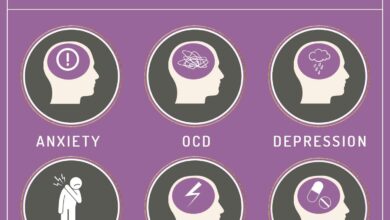What Google’s Latest Update Means: Mastering the New SEO
Google’s Latest Update March 2024 Core Update reshapes SEO. Master E-E-A-T, helpful content & AI-proof strategies to rank higher.

Google’s Latest Update has once again reshaped the search engine optimization landscape, introducing significant changes that demand immediate attention from digital marketers and website owners. With an intensified focus on user experience (UX), content quality, and E-E-A-T (Experience, Expertise, Authoritativeness, Trustworthiness), this update rewards websites that deliver genuine value while penalizing those relying on outdated tactics. Understanding these shifts is critical for maintaining search visibility and staying competitive in an increasingly dynamic digital environment.
As search engines evolve, so must SEO strategies. This article breaks down the key elements of Google’s latest update, providing actionable insights to help businesses and content creators adapt effectively. From technical optimizations to content enhancements, mastering these new SEO principles will be essential for long-term success in organic search rankings. Whether you’re an SEO professional or a business owner, staying ahead of these changes will ensure your website remains visible and authoritative in the eyes of both Google and your target audience.
What Google’s Latest Update Means
Understanding Google’s Latest Algorithm Update
Google’s search algorithms are constantly refined to improve the accuracy and relevance of search results. The latest update builds upon previous core updates, further emphasizing high-quality content, user experience, and trust signals. Unlike past updates that primarily targeted spammy backlinks or keyword stuffing, this one takes a more holistic approach, assessing how well a website meets user intent.
E-E-A-T
One of the most significant changes is the increased weight given to E-E-A-T (Experience, Expertise, Authoritativeness, and Trustworthiness). Google now prioritizes content created by credible sources with proven expertise in their field. This means that websites with well-researched, authoritative content will rank higher than those relying on superficial or automated content.
page experience signals
Another critical factor is page experience signals, including Core Web Vitals, mobile-friendliness, and secure browsing (HTTPS). Google has made it clear that a seamless, fast-loading website is no longer optional—it’s a necessity. Pages with poor performance metrics may see significant drops in rankings, regardless of content quality.
helpful content updates
Additionally, helpful content updates continue to play a major role. Google rewards content that genuinely assists users, rather than material created solely for search engines. This means that keyword optimization must be balanced with natural, informative writing that answers user queries comprehensively.
AI-generated content
Finally, AI-generated content is under stricter scrutiny. While AI can assist in content creation, Google’s systems are now better at detecting low-value, machine-generated text. Websites relying heavily on AI without human oversight may face penalties unless the content demonstrates depth and originality.
Key Strategies to Adapt to the New SEO Rules
Double Down on E-E-A-T
Google’s Latest Update intensified focus on E-E-A-T means your content must demonstrate real-world expertise. Feature credentials of authors, include author bios with qualifications, and cite reputable sources. For YMYL (Your Money Your Life) topics like health or finance, this is particularly crucial – consider adding expert reviews or peer validation to boost trust signals.
Optimize for Google’s Helpful Content System
The helpful content update now actively demotes content created primarily for ranking purposes. Conduct thorough audience research to understand user intent, then create content that genuinely solves problems. Use tools like Google’s People Also Ask to identify follow-up questions real users have, and structure your content to provide complete, satisfying answers.
Leverage AI Content Responsibly
While Artificial Intelligence can assist with content creation, Google’s spam policies now specifically address auto-generated content. Always have human editors refine AI output to add Unique insights and personal experiences. Up-to-date information and examples. Natural language patterns and brand voice. Use AI for research and drafting, but never publish without human oversight.
Master Core Web Vitals and Page Experience
With page experience as a confirmed ranking factor, prioritize Largest Contentful Paint (LCP) is optimize images, implement lazy loading, and upgrade hosting. Interaction to Next Paint (INP) is Simplify JavaScript and reduce DOM size. Cumulative Layout Shift (CLS) set image dimensions and avoid late-loading elements. Mobile responsiveness is non-negotiable test using Google’s Mobile-Friendly Test tool regularly.
Implement Topic Clusters Instead of Keyword Targeting
Google’s Latest Update semantic understanding means you should build content around topics rather than individual keywords. Create comprehensive pillar pages supported by cluster content that collectively demonstrate expertise on a subject. Use internal linking strategically to reinforce these relationships and help Google understand your content’s structure.
Build Authoritative Backlinks Through Digital PR
The Latest Update continues to value high-quality backlinks, but manipulative link-building risks penalties. Focus on Creating truly newsworthy content worth citing. Developing relationships with industry publications. Securing mentions in contextually relevant resources. Consider HARO (Help a Reporter Out) or expert roundups to earn organic links.
Enhance Content with Multimedia and Structured Data
Rich media and proper markup help content stand out Add relevant videos, infographics, and interactive elements. Implement schema markup for FAQs, how-tos, and local business info. Use alt text and descriptive filenames for all images. These enhancements improve accessibility while giving Google more signals about your content’s value.
Regularly Audit and Refresh Existing Content
Historical optimization is more important than ever. Set up a process to Identify high-potential older content. Update statistics, examples, and outdated information, Expand thin content to better meet current standards and Prune or redirect truly obsolete pages. This maintains your site’s overall quality score in Google’s eyes.
Prioritize Local SEO for Relevant Businesses
For location-based businesses Claim and optimize Google Latest Update Business Profile listings. Ensure NAP (Name, Address, Phone) consistency across directories. Encourage genuine customer reviews. Create locally relevant content (neighborhood guides, service area pages).
Monitor Performance and Adapt Continuously
SEO is now more dynamic than ever. Implement Regular ranking tracking with tools like Search Console. User behavior analysis via heatmaps and session recordings. A/B testing for on-page elements. Be prepared to pivot strategies based on performance data and subsequent Google’s Latest Update.
Read More: Top Internet of Things Devices Changing Urban Living
Conclusion
Google’s latest update has made it clearer than ever that search engine optimization is no longer just about keywords and backlinks it’s about delivering exceptional user experiences and authoritative content. By prioritizing E-E-A-T, technical performance, and genuine value, businesses can future-proof their SEO strategies and maintain strong search visibility. Those who adapt quickly to these changes will gain a competitive edge, while those clinging to outdated tactics risk falling behind in an increasingly sophisticated digital landscape.
As we move forward, the key to mastering Google’s latest update lies in balancing technical precision with human-centric content creation. Focus on building trust with your audience, optimizing for seamless user experiences, and staying informed about evolving search trends. By embracing these principles, you’ll not only comply with Google’s Latest Update but also create a more meaningful and sustainable online presence that drives long-term growth.
FAQs
What is the main focus of Google’s latest update?
Google’s Latest Update emphasizes E-E-A-T, user experience, and high-quality content, penalizing low-value or spammy pages.
How does AI-generated content affect rankings?
AI content is acceptable if well-edited and insightful, but purely automated, low-quality text may harm rankings.
What are Core Web Vitals, and why do they matter?
Core Web Vitals measure loading speed, interactivity, and visual stability—key factors in Google’s ranking algorithm.
How can I improve my site’s E-E-A-T?
Use expert contributors, cite reliable sources, and maintain transparency with author credentials and secure protocols.
Is keyword research still important?
Yes, but focus on user intent and semantic relevance rather than exact-match keyword stuffing.










